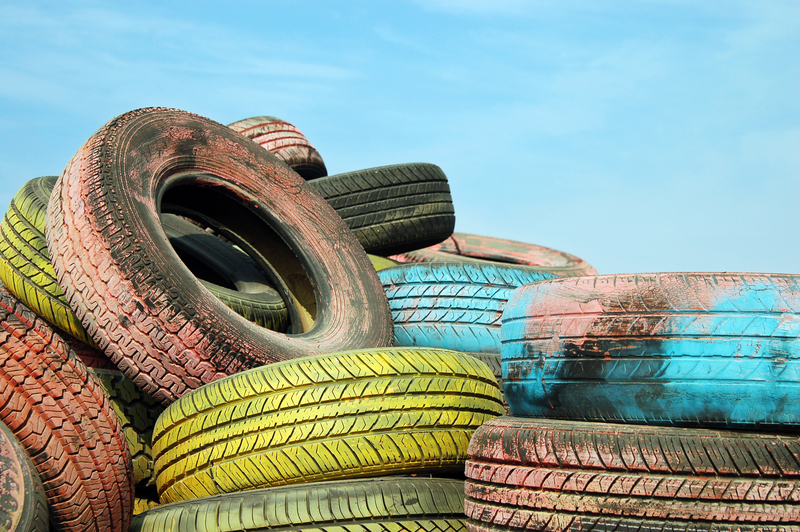In today's rapidly industrializing world, the importance of sustainable practices cannot be overstated. Among the myriad ways to promote an eco-friendly environment, metal recycling stands out as an impactful solution. This article will delve into the intricacies of recycling metals and explore how this practice contributes to a more sustainable industry.
The Basics of Metal Recycling
The process of recycling metals involves converting scrap metals into reusable materials. This not only helps conserve natural resources but also reduces energy consumption, leading to less environmental impact. Various metals, including aluminum, steel, copper, and iron, are commonly recycled and used across multiple industries.

Understanding Scrap Metals
Scrap metal can be categorized into two types:
- Ferrous Metals: These contain iron and are magnetic. Common examples include steel and iron.
- Non-Ferrous Metals: These do not contain iron and are non-magnetic, including metals like aluminum, copper, brass, and lead.
The Metal Recycling Process
The metal recycling process includes several stages:
- Collection: The first step involves gathering scrap metal from a variety of sources, such as end-of-life vehicles, demolished buildings, and discarded electronics.
- Sorting: Separation of metals is crucial to ensure the purity of recycled materials. Various methods, such as magnets for ferrous metals and eddy current separation for non-ferrous metals, are employed.
- Processing: The shredded metals are then melted in large furnaces. The process uses significantly less energy compared to producing new metals from ores.
- Purification: To ensure the highest quality of recycled metal, contaminants are removed through electrolysis or other purification processes.
- Solidifying and After-Treatment: Once purified, metals are solidified into shapes like bars or sheets, ready for distribution and use in manufacturing new products.
Benefits of Recycling Metals
The benefits of metal recycling extend beyond environmental preservation. Let's take a closer look:
Environmental Impact
Recycling metals significantly reduces the environmental footprint. Here's how:
- Conservation of Natural Resources: By recycling metals, the need to extract raw materials is dramatically reduced, conserving valuable natural resources.
- Energy Savings: Recycling processes use up to 95% less energy compared to producing new metal from virgin ore, cutting greenhouse gas emissions significantly.
- Reduction of Landfills: By turning waste metal into reusable materials, we reduce the burden on landfills, helping to maintain cleaner environments.
Economic Advantages
Metal recycling is also economically beneficial:
- Job Creation: The metal recycling industry can create numerous jobs, from collection and processing to management and distribution.
- Cost Efficiency: Using recycled metals can be more cost-effective than sourcing and processing raw materials.
Sustainable Industry Growth
Industries that adopt metal recycling practices are better positioned for sustainable growth. By caring for the environment, these industries contribute to a healthier planet, strengthening their brand and increasing consumer goodwill.
Challenges and Opportunities in Metal Recycling
Despite the merits, metal recycling stands at a crossroads of challenges and opportunities.
Challenges in Metal Recycling
The metal recycling industry faces several challenges:
- Material Quality: Ensuring the purity of recycled metals is crucial. Impurities can degrade the quality and usability of the material.
- Market Fluctuations: The demand for scrap metals can be volatile, affecting the profitability of recycling businesses.
- Regulatory Compliance: Recycling facilities must adhere to strict environmental regulations, which can increase operational costs.
Opportunities in Metal Recycling
For every challenge, however, there are equal opportunities:
- Technological Advancements: Innovations like smart sorting technologies and advanced melting processes are enhancing the efficiency and effectiveness of recycling operations.
- Global Expansion: With the rising awareness of environmental issues, there is a significant opportunity to expand recycling operations worldwide.
- Collaborative Ecosystems: Partnerships between governments, NGOs, and private sectors can pave the way for improved recycling infrastructure and practices.

The Future of Metal Recycling
The trajectory of metal recycling is promising. As industries continue to recognize the importance of sustainability, recycling will play an integral role in building a circular economy.
Attention should be paid to:
- Education and Awareness: Increasing public awareness about the importance of recycling metals can lead to greater participation and support.
- Incentives for Recycling: Governments can offer tax breaks or subsidies to encourage businesses and consumers to engage in recycling practices.
A Circular Economy
The concept of a circular economy--one where waste is minimized, and materials are endlessly reused--epitomizes the potential of metal recycling. By designing goods with an eye toward recyclability and establishing extensive recycling networks, industries can foster sustainable development.
In conclusion, metal recycling is not merely an environmental obligation; it is a strategic move towards building an eco-friendly industry. By fully harnessing the potential of recycling metals, we inch closer to a world where industry and environment can coexist in harmony.